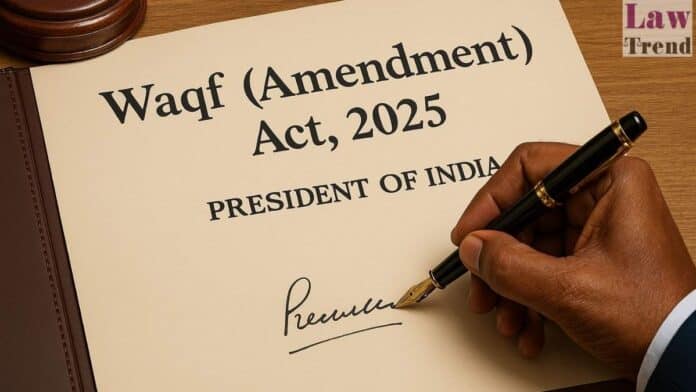The Supreme Court has agreed to consider urgent hearing requests for several petitions challenging the constitutional validity of the recently enacted Waqf (Amendment) Act, 2025. A bench headed by Chief Justice Sanjiv Khanna, along with Justices Sanjay Kumar and KV Viswanathan, responded to advocates’ submissions, emphasizing the necessity for a prompt judicial review.
Senior advocates Kapil Sibal and Abhishek Singhvi, along with lawyer Nizam Pasha, brought the petitions to the court’s attention, advocating for an expedited process. Sibal, representing Jamiat Ulama-i-Hind, highlighted the urgency due to the substantial implications of the law on religious freedoms.
The petitions argue that the Waqf (Amendment) Act represents a significant overreach by the central government, encroaching on the rights of the Muslim community to manage Waqf properties—a critical aspect of their religious and community life. According to the challengers, the Act undermines the autonomy of State Waqf Boards and centralizes authority, violating the federal structure of the Constitution.
President Droupadi Murmu’s recent approval of the Bill, following intense debates in both houses of Parliament, has sparked widespread concern among various stakeholders, including politicians like Congress MP Mohammad Jawed and AIMIM president Asaduddin Owaisi, as well as the AAP’s Amanatullah Khan.
The Jamiat Ulama-i-Hind, in its petition, condemned the amendments as a “dangerous conspiracy” against the constitutional guarantee of religious freedom. The organization plans to challenge the Act across multiple states, reflecting the widespread apprehension within the community.
Samastha Kerala Jamiathul Ulema, representing Sunni Muslim scholars and clerics, described the amendments as a “blatant intrusion” into their religious rights, particularly concerning the governance of Waqf properties. Their plea asserts that the Act distorts the religious character of Waqfs and disrupts the democratic processes traditionally involved in their administration.
Furthermore, the Association for the Protection of Civil Rights has also filed a petition, emphasizing the Act’s potential to impose arbitrary restrictions on the management of Waqf properties, effectively discriminating against the Muslim community.




